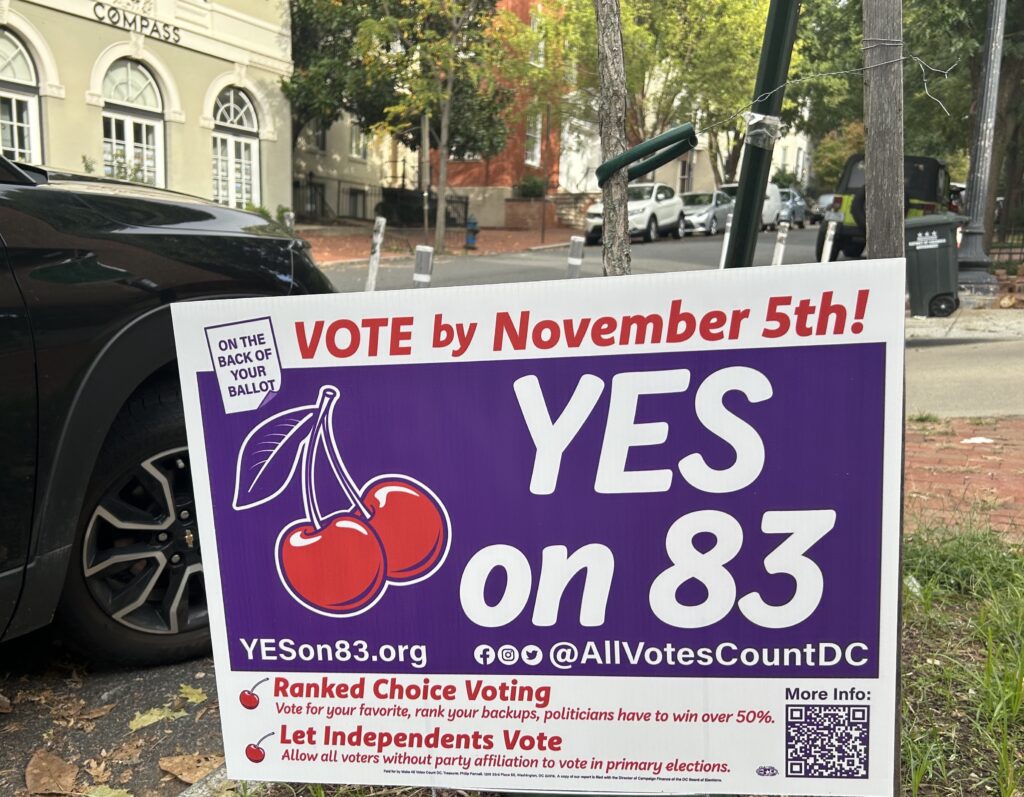Editorial: Ranked-Choice Voting Is on the Ballot. What to Do?
By • October 9, 2024 0 908

Ranked-choice voting — in which every voter has the option to rank up to five candidates for each office according to his or her preference — is on the Nov. 5 general election ballot as Initiative 83.
If approved, it would apply to all voters, regardless of party registration. Initiative 83 proposes a move to semi-open primaries. Concretely, this means that unaffiliated voters could choose if they’d like to vote in the Democratic or Republican primary by indicating their preference to the D.C. Board of Elections ahead of each contest. It does not mean that Democrats could vote in the Republican primary or that Republicans could vote in the Democratic primary.
With ranked-choice voting, any candidate topping 50 percent of the vote is a winner. In some cases, the candidate list for a particular office may need to be whittled down to the top-ranked candidates to declare a majority winner.
Initiation 83 is controversial. It made it onto the November ballot in September through a long process of petitions, legal overview and campaigning. D.C.’s political leadership — almost all Democrats — is divided, some opposing and some supporting ranked-choice voting.
Mayor Muriel Bowser refused to sign the petition. She is on public record saying, “It’s a bad idea and unnecessary.” Only registered Democrats should participate in a Democratic primary, opines Bowser and most of the initiative’s other opponents. Many say that Initiative 83 violates party affiliates’ rights to freely associate with a political party. Some say ranked-choice voting will result in “a jungle primary.”
However, “jungle primary” is not a slur but a type of primary election. It is a nonpartisan primary election in which all candidates for the same elected office run against each other at once, regardless of political party. The Home Rule Act requires all elections in D.C. to be partisan, so it is not possible to have a jungle primary in D.C.
But supporters are convinced that it will give elected officials more accountability to their constituents. “They’ll only win if they garner more than 50 percent of the vote,” argues Lisa D. T. Rice, a Ward 7 Advisory Neighborhood Commissioner, who proposed the initiative. “Currently over 70,000 voters are disenfranchised from the primaries because they don’t want to affiliate as a Democrat nor a Republican while voting,” she says. Rice and others support the initiative even though it may take more time and a number of ballots to arrive at a majority winner.
How to vote then? There are still a few weeks before the election and lots of information to peruse, online and off. While leaning in favor of Initiation 83, The Georgetowner suggests that you learn more about the pros and cons of ranked-choice voting, informing yourself by reading and talking to people on both sides. Then, vote your conscience.

